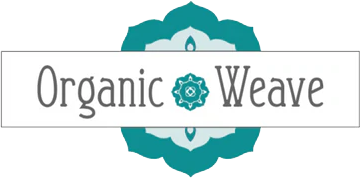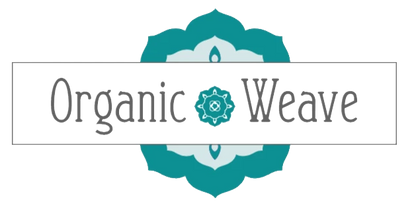WE SHIP WORLDWIDE
WE SHIP WORLDWIDE
A Love Letter to Organic Wool
August 22, 2024 4 min read
When I started Organic Weave, I thought that all natural fiber rugs were all natural, made without toxic chemicals.
I thought all wool was "organic".

The textile industry is known to be one of the most polluting industries on the planet. Clothing, upholstered furniture and rugs surround us. They emit Volatile Organic Compounds (VOCs), polluting the air we breathe every day. Our exposure to these chemicals can lead to many health problems such as asthma, skin rashes, allergies and more.
More and more companies are selling “natural” products. However, there is no guarantee that they are free of harmful chemicals - the way they are marketed can be misleading. The only way to verify a product’s toxicity is through third party testing.
Certified organic products are subject to a strict manufacturing protocol to verify that they do not contain toxic materials.
The Benefits of Organic Wool: Why It’s Worth the Switch

Organic wool stands out as a champion in the world of textiles. If you’re considering making the switch from conventional wool to its organic counterpart, you’re not just making a style and functional choice; you’re also making a statement about your values.
We're outling the myriad benefits of organic wool and why it’s worth choosing organic wool.
What is Organic Wool?
Organic wool comes from sheep that are raised according to organic farming practices. This means the sheep graze on organic pastures, free from synthetic pesticides and fertilizers. They are also typically raised without antibiotics or growth hormones. The wool itself is processed without harsh chemicals, resulting in a more natural and eco-friendly product.
1. Environmental Benefits
One of the most compelling reasons to choose organic wool is its positive impact on the environment. Organic wool farming practices prioritize soil health, biodiversity, and sustainable land management. By avoiding synthetic chemicals and focusing on natural farming techniques, organic wool helps maintain healthy ecosystems and reduces pollution.
Organic farms also promote soil fertility through natural composting and crop rotation, which can lead to improved soil structure and increased carbon sequestration. This means that organic wool has a lower carbon footprint compared to conventionally farmed wool.
2. Animal Welfare
The welfare of the animals is a cornerstone of organic farming practices. Organic wool producers adhere to strict guidelines that ensure sheep are treated humanely. They are given ample space to graze, have access to clean water, and are housed in conditions that minimize stress and health issues.
Additionally, organic wool farming prohibits the use of harmful chemicals and antibiotics, contributing to the overall well-being of the animals. This humane approach not only benefits the sheep but also translates into a higher-quality product for consumers.
3. Quality and Durability
Organic wool is often of superior quality compared to conventional wool. Because organic wool comes from healthy, well-cared-for sheep, it tends to be softer and more resilient. The absence of harsh chemicals in the processing stage also contributes to its softness and durability.
Organic wool garments are less likely to cause skin irritation, making them a great choice for those with sensitive skin. Moreover, the natural properties of wool—such as its moisture-wicking abilities, breathability, and thermal regulation—are preserved, ensuring that your organic wool products remain functional and comfortable for years to come.
4. Reduced Chemical Exposure
Conventional wool production involves the use of numerous chemicals, including pesticides and dyes, which can have detrimental effects on both the environment and human health. Organic wool, on the other hand, is processed without these harmful substances. This means you’re not only reducing your exposure to potentially hazardous chemicals but also supporting a cleaner and safer industry.
5. Sustainability and Biodegradability
Wool is a natural fiber that is both sustainable and biodegradable. Organic wool takes this a step further by ensuring that the entire production process—from farming to processing—is as eco-friendly as possible. When organic wool products reach the end of their life cycle, they break down naturally, reducing waste and minimizing their impact on landfills.
6. Supporting Ethical Practices
By choosing organic wool, you are supporting farming practices that prioritize environmental stewardship and animal welfare. Organic wool farms often use smaller-scale, family-run operations that focus on quality and ethical practices rather than mass production. Your purchase helps sustain these values and promotes a more equitable and responsible industry.
7. Reducing our Artisans' Exposure to Toxic Chemicals
One aspect that is rarely discussed is that artisans worldwide are exposed to unhealthy chemicals while working with conventional, non-organic raw materials. We believe in creating a product that is healthy for you and for those who made it.
How is An Organic Rug Made?
An Organic Rug is made according to the strict protocol established by GOTS:
- Raw materials are from traceable, certified organic producers.
- Cleaning or scouring raw materials uses biodegradable cleansing agents.
- Water is used in a sustainable way throughout processing.
- No synthetic agents or oils are used in spinning process.
- Yarn is dyed using Global Organic Textile Standard approved dye stuffs.
- Farmers and Fabricators are treated fairly.
- Rugs are finished with no harmful chemicals or detergents.


Organic Weave rugs are certified organic by Global Organic Textile Standard (GOTS).
GOTS is the worldwide leading textile processing standard for organic textiles. Our entire production process is monitored – from the first cultivation of our fibers to the washing and finishing stages of our process. We ensure that raw materials are sourced from traceable and certified organic producers. We only use biodegradable and non-toxic products.

Switching to organic wool offers a host of benefits that go beyond just the aesthetic appeal of your clothing and home textiles. From its positive environmental impact and humane animal treatment to its superior quality and reduced chemical exposure, organic wool represents a choice that aligns with a more sustainable and ethical lifestyle.
If you invest in organic wool, not only will you be investing in a product that’s better for you and the planet, but you’ll also be making a conscious decision to support practices that promote a healthier world for all.
I believe that a truly beautiful rug is one that is impeccably hand crafted by artisans who are treated fairly and made with materials that are in harmony with nature. Non-toxic production is healthier for everyone - the artisans, the planet, and you.
Leave a comment
Comments will be approved before showing up.
Subscribe
Sign up to get the latest on sales, new releases and more …


